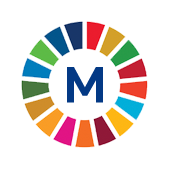 5.6.1 Independent decision making on reproductive health, by wealth index quintilesMetadataPeriod: Every four yearsYear: 2025 |
 5.6.1 Independent decision making on reproductive health, by wealth index quintilesMetadataPeriod: Every four yearsYear: 2025 |
| METADATA |
| Indicator information |
| Definition and methodology |
| Data source type and data collection method |
| Notes |
| ID of global indicator |
| Metadata update |
| Global metadata |
| Indicator information | Top |
| Indicator | |
5.6.1 Independent decision making on reproductive health, by wealth index quintiles | |
| Global indicator name | |
5.6.1 Proportion of women aged 15-49 years who make their own informed decisions regarding sexual relations, contraceptive use and reproductive health care | |
| Target | |
5.6 Ensure universal access to sexual and reproductive health and reproductive rights as agreed in accordance with the Programme of Action of the International Conference on Population and Development and the Beijing Platform for Action and the outcome documents of their review conferences | |
| Goal | |
Goal 5. Achieve gender equality and empower all women and girls | |
| Definition and methodology | Top |
| Definition | |
Percentage of women age 15-49 years currently married or in union, who are not pregnant and think they are physically able to get pregnant, who make their own informed decisions regarding sexual relations, contraceptive use and reproductive health care.
SDG target speaks to universal reproductive rights and the indicator is premised on three core elements of women’s reproductive rights: (1) Decision on sexual relations, (2) Decision on use of contraception, and (3) Decision on use of health care. A woman is considered to have autonomy in reproductive health decision making and to be empowered to exercise her reproductive rights if she: can say “NO’ to sex with their husband/partner if she does not want to, decides on use/ non-use of contraception and decides on health care for herself or jointly with her husband/partner. Only women who provide a “yes” answer to all three components are considered as women who “make their own decisions regarding sexual relations, contraceptive use and reproductive health care”. | |
| Methodological explanations | |
Data is collected in line with the Multiple indicator Cluster Survey (MICS) methodology. Data for SDG indicator 5.6.1 must include the population important to SDG 5.6.1, specifically, women of reproductive age (15-49) currently married or in a union. | |
| Method of calculation | |
Proportion = (Numerator/Denominator) * 100
Numerator: Number of married or in union women and girls aged 15-49 years old: – for whom the decision on health care for themselves is not usually made by the husband/partner or someone else; and – for whom the decision on contraception is not mainly made by the husband/partner; and – who can say no to sex. Only women who satisfy all three empowerment criteria are included in the numerator.
Denominator: Total number of women and girls aged 15-49 years old, married or in union. | |
| Unit of measure | |
% | |
| Available disaggregation | |
Wealth index quintiles | |
| Territorial level | |
Regions | |
| Data source type and data collection method | Top |
| Data source | |
Multiple Indicator Cluster Survey (MICS) | |
| Periodicity of data collection | |
Every four years | |
| Notes | Top |
| ID of global indicator | Top |
C050601 | |
| Metadata update | Top |
| 2/6/2025 | |
| Global metadata | Top |
https://unstats.un.org/sdgs/metadata/files/Metadata-05-06-01.pdf | |